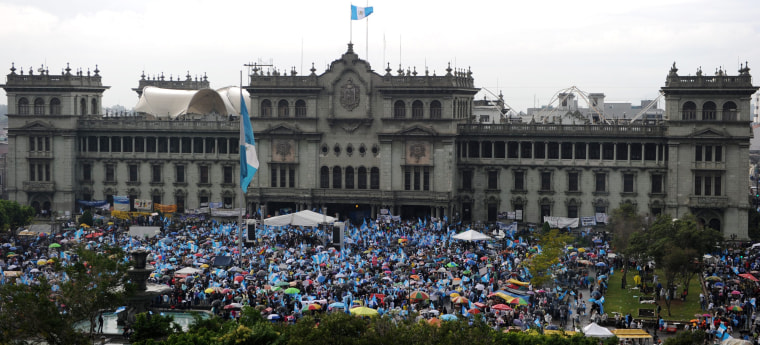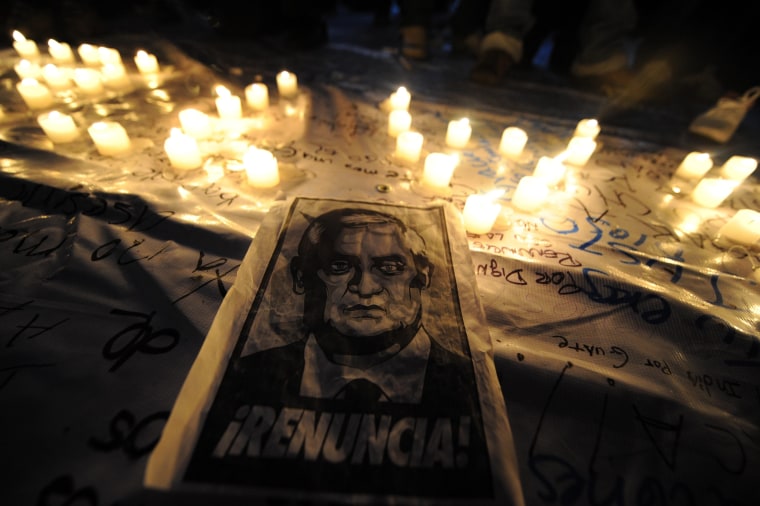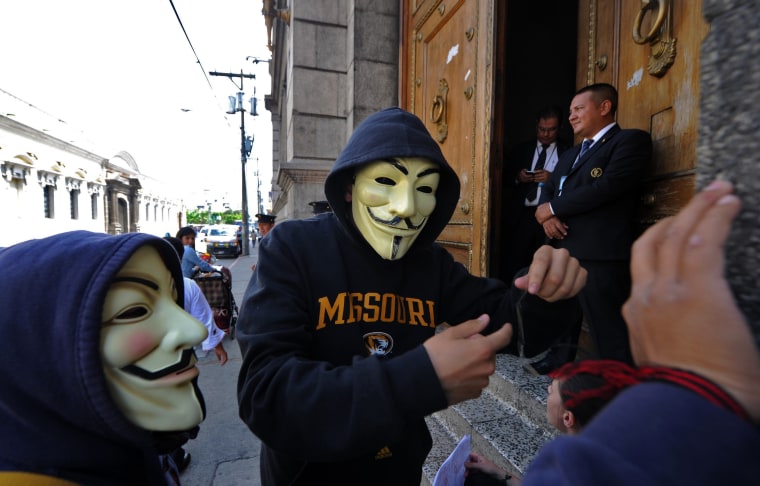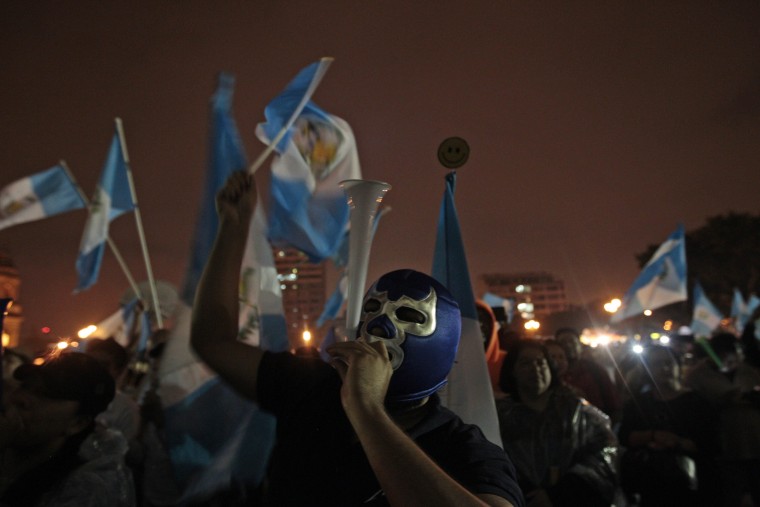ANTIGUA, Guatemala -- The popular protests of Guatemalans not only yielded the immediate stripping of immunity from investigation of the country's president, but their populist victory could shape Sunday's election of a new president.
After 19 weeks of almost weekly peaceful demonstrations and marches calling for an end to government corruption and the resignation of corrupt public officials, the country’s Congress on Tuesday afternoon voted unanimously 132-0 to strip President Otto Pérez Molina, the former military general implicated in a corruption scandal, of immunity from prosecution.

The decision touched off celebrations that continued long into the night and the early morning hours of Wednesday. Braving intermittent rain showers, thousands of Guatemalans waved the blue and white Guatemalan flag, sang the national anthem, chanted, blew whistles and noise makers, and set off firecrackers in a mass jubilant display rarely seen in this country.
“Es el triunfo del pueblo,” “It’s the triumph of the people, “ said demonstrator Miguel Valdez, with tears in his eyes, “It’s justice!”
The vote opens the way for the justice system to try Pérez Molina on charges related to the skimming of more than $3.5 million in bribes from the customs office. The scandal has also led to the arrest of the country’s vice-president and the resignation of six cabinet ministers. Pérez Molina has been barred from leaving the country.
“For Guatemala, what took place on Sept. 1 is nothing less than the triumph of citizenry in their demand for change. It wasn’t easy for it to get to this point, and it only happened because of pressure from ordinary citizens."
Guatemalans' will continue to have their say on who is running their government when they cast ballots this Sunday. The current president is constitutionally banned from running again, but polls show the scandal has taken a toll on leading presidential candidate Manuel Baldizon, whose senior officials have also been tainted by the corruption scandal.
Others seeking the presidency are center-left National Unity of Hope party candidate and former First Lady Sandra Torres and comedian Jimmy Morales, of the FCN party.
Guatemalans also are scheduled to vote for a new vice president, as well as all 158 of its congressional members, 20 members of the Central American Parliament and mayors and councils in hundreds of municipalities throughout the country.
Some protesters have been demanding that Sunday's elections be postponed.
In a Monday press conference, Pérez Molina, whose resignation has been a principal demand of the protestors, strongly denied his involvement.
"I categorically deny and reject the accusation that I was involved … and having received any money from that customs fraud scheme." Pérez Molina called the episode the “most humiliating of my life," suggesting he is a victim of a plot by political enemies, and announcing he would seek an injunction to stop legal charges.

The president’s appearance was quickly followed by another press conference in which representatives of Guatemala’s powerful business sector and human rights organizations countered the President’s charges and again urged him to resign.
The revelation of the extent of the corruption reaching Guatemala’s highest level has led to this Central American country’s most severe political crisis in decades.
Also, some say, it is the first one that could eventually lead to real change in this country about the size of Tennessee, home to 14 million people and which is often cited as a “failed state.” Some 1.2 million people of Guatemalan origin lived in the U.S. in 2013, according to Pew Research Center.
Political analysts here credit yesterday’s unexpected vote in the Congress to the continuing popular demands for change.
“For Guatemala, what took place on Sept. 1 is nothing less than the triumph of citizenry in their demand for change. It wasn’t easy for it to get to this point, and it only happened because of pressure from ordinary citizens,” said Pedro Trujillo, director of the Political Science Department at Francisco Marroquin University in Guatemala City.
“There is great satisfaction that in a small country facing corrupt, criminal officials, we showed the world that hope is possible, that we can say, Obama-style, ‘Yes we can make this a better country if the people want it,'" Trujillo said.

Other analysts say what’s happening in Guatemala in the last few months is that a population long kept silent and threatened by those in power is finally losing its fear and apathy.
This has been helped along by widespread indignation among Guatemalan youth, who make up the majority of the population, are heavy users of social media, and see little hope for a better life with the country’s status quo. Half of Guatemalans are under the age of 19, the youngest population in Latin America.
Guatemala is Central America’s largest economy, with a poverty rate of more than 50 percent. Guatemala’s economic system is considered the most unequal in Latin America, with the richest 20 percent accounting for more than half of the country’s consumption. Nearly one-half of Guatemala’s children under 5 are chronically malnourished, one of the highest rates in the world.
Meanwhile, the Obama Administration has proposed a $1 billion aid package for Guatemala, El Salvador, and Honduras in order to stem the flow of migrants fleeing those countries to the United States.
Last summer, tens of thousands of unaccompanied children and families from Central American and Mexico arrived on the U.S. border fleeing their countries' violence and poverty. Guatemala was second behind Honduras in the number of unaccompanied children - 18,244 for Honduras and 17,057 for Guatemala, who arrived at the border between Oct. 1, 2013 and Sept. 30, 2014., according to U.S. Customs and Border Protection.
But since Oct. 1, 2014, through July 31, 2015, Guatemala has lead in that statistic, with 10,756 arrivals of unaccompanied children.
While the Obama aid package calls for good governance and economic development, many in Guatemala hope the U.S. will call for much stronger reforms for Guatemala’s future governments.
